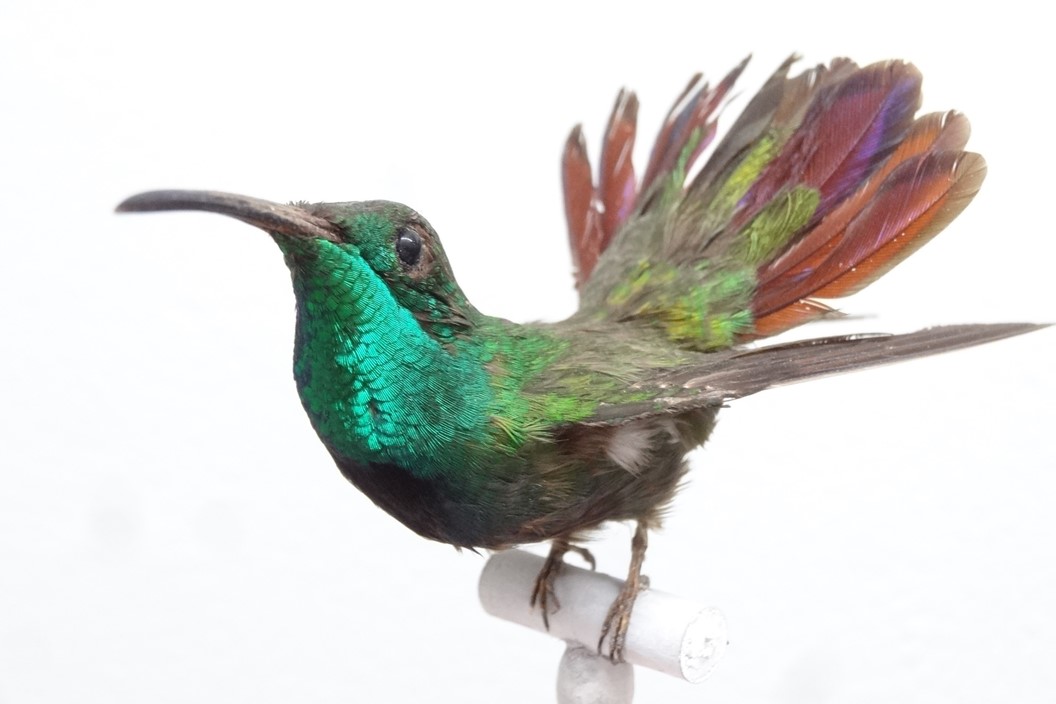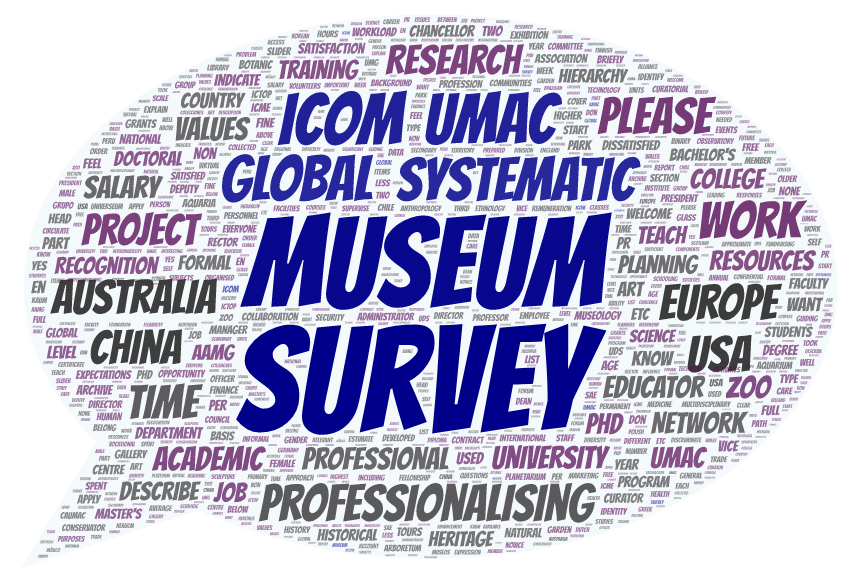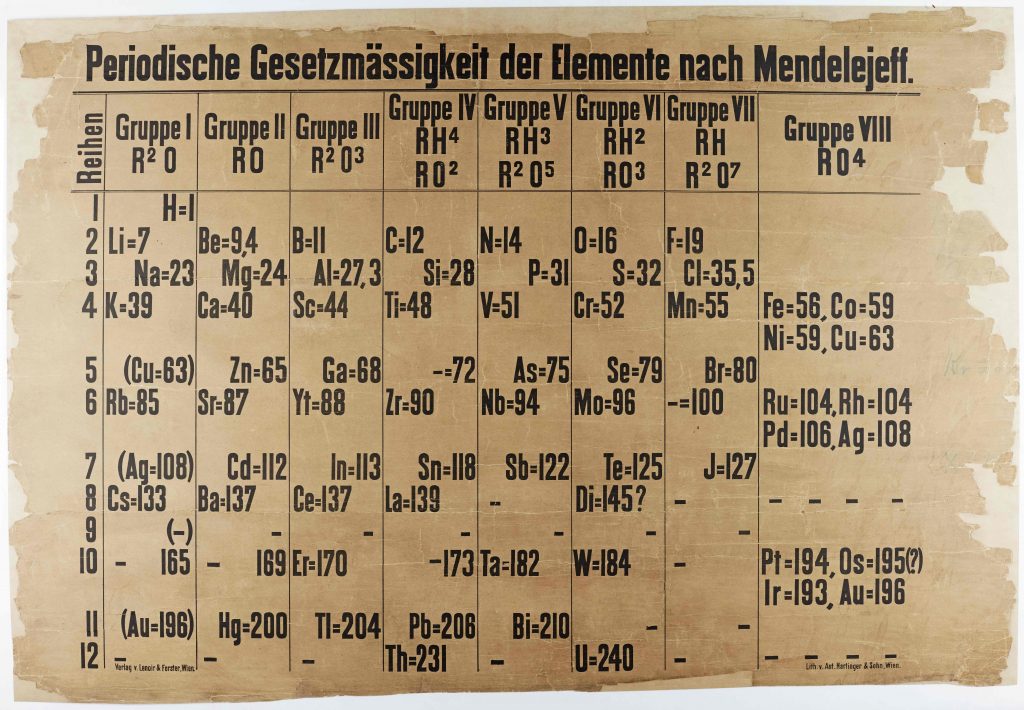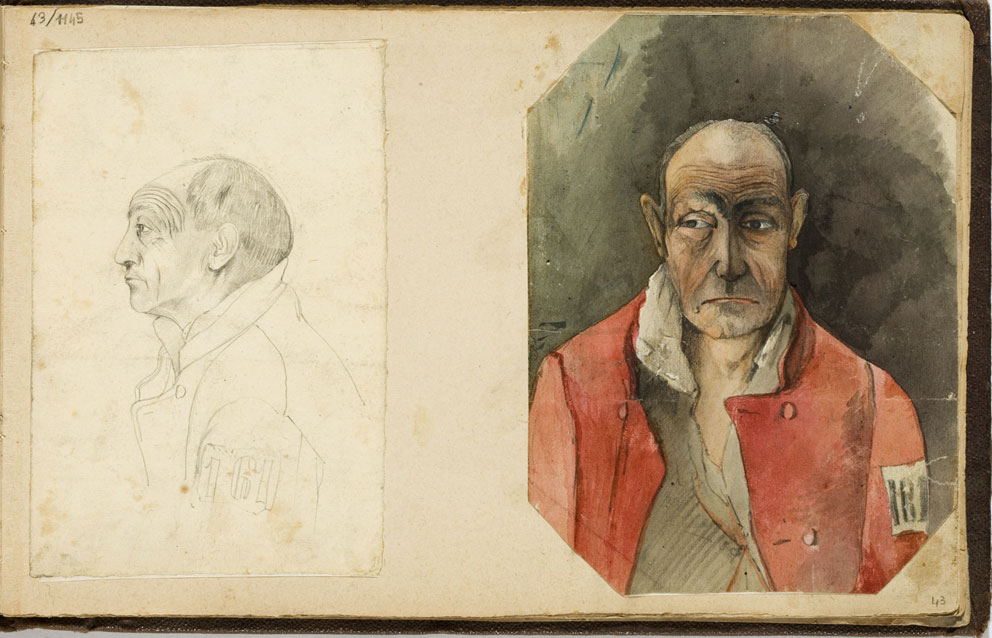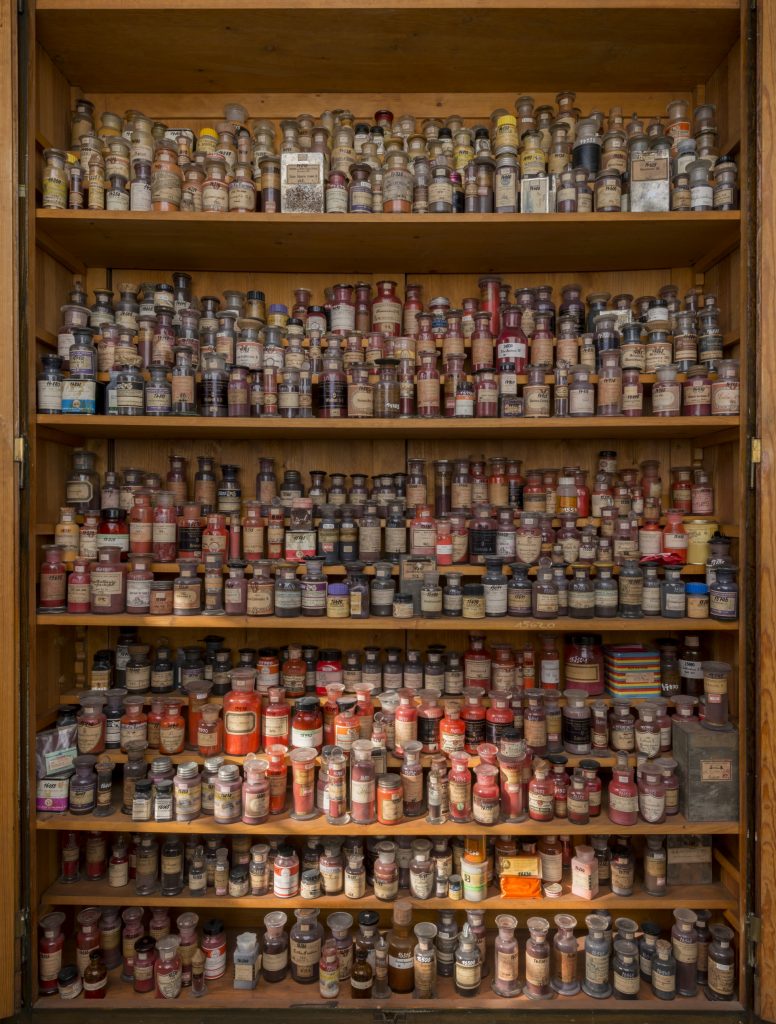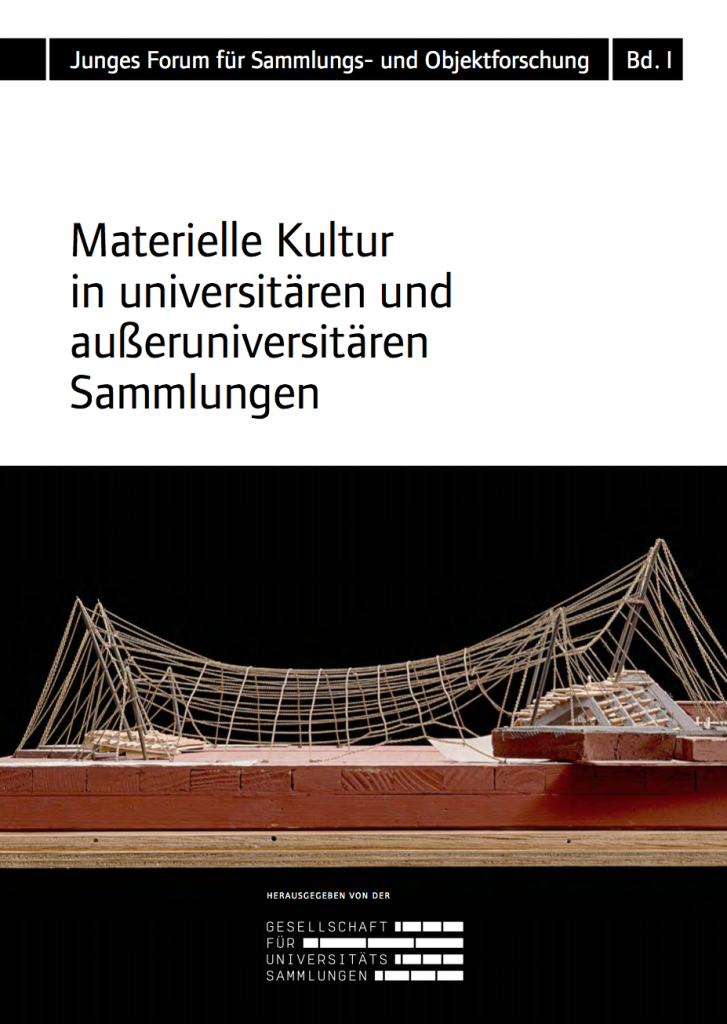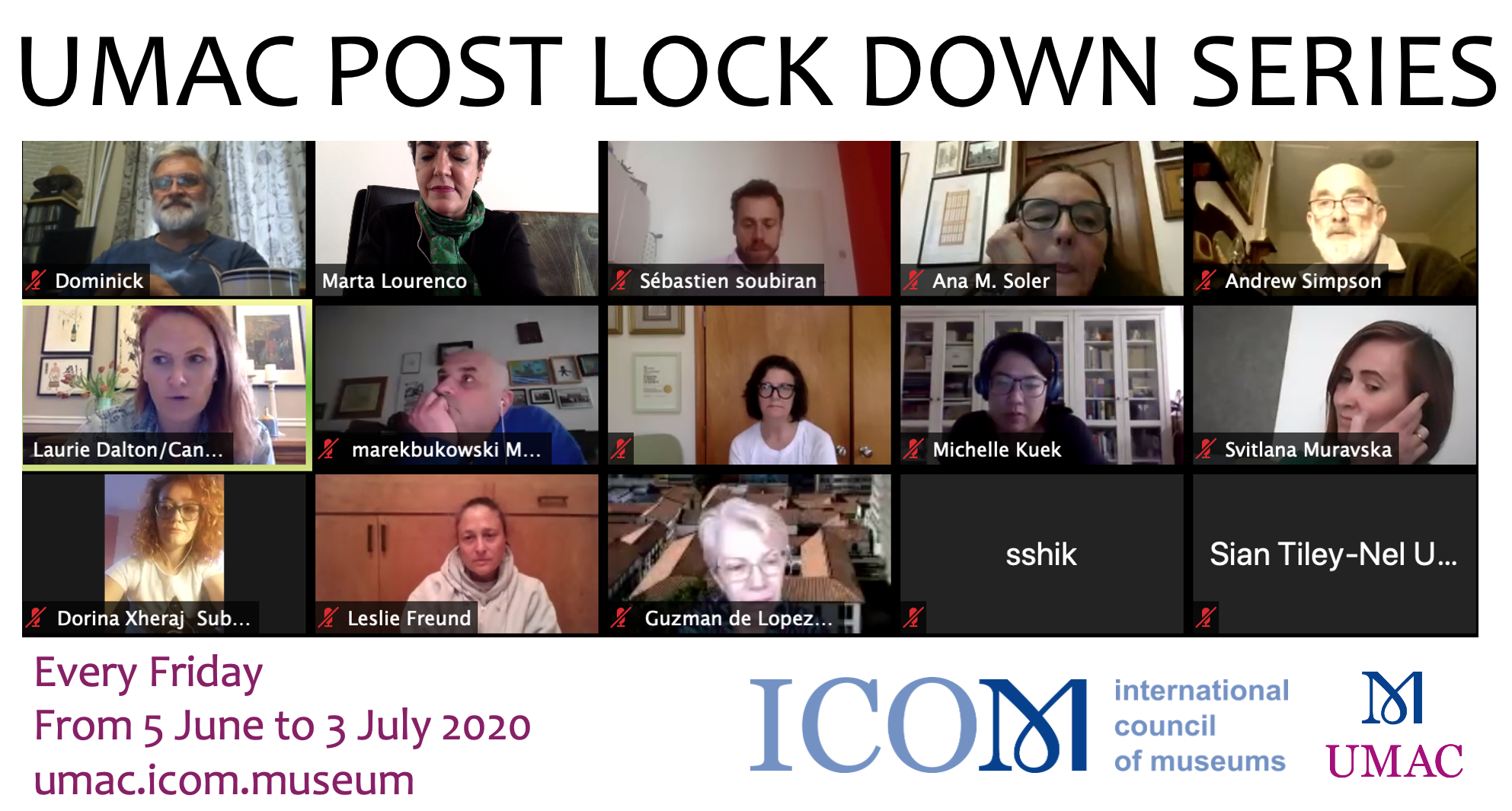
Since late March, universities across the world have closed, lectures were moved online and research – apart from COVID research – has suffered limitations due to safety reasons. As lockdown rules relax and museums worldwide gradually reopen, UMAC wants to have a global overview of the situation for university museums and collections.
How did the lockdown affect your university museum, collection, botanic garden or science center? How did you navigate the plethora of online platforms and social media, both internally and publicly? How did you respond to your audiences – researchers, students, general public? What lessons did you learn?
UMAC is organizing a series of five informal webinars every Friday between 5 June and 3 July 2020. The series will take place on ZOOM. Each webinar will happen twice a day to facilitate access from different time zones.
Please see below how you can participate.
The series will be made available au fur et à mesure under our resources section — webinars and in UMAC YouTube channel.
Similar initiatives are being organised by Universeum (also here) and the AAMG – check their websites for details.
WEBINAR I: Reopening for the public
5 June 2020
Has your university museum, botanic garden or science center reopened to the public or will reopen soon? What safety measures are you implementing in your exhibitions and public spaces? Will you reopen totally or partly? If you are on campus, how are you coping with the restrictions of a closed campus?
8 AM Lisbon/9 AM Pretoria/3 PM Shanghai/4 PM Tokyo/5 PM Sydney, moderated by Andrew Simpson, Australia
5 PM Lisbon/11 AM Mexico City/12 PM New York/1 PM Rio de Janeiro, moderated by Marta Lourenço, Portugal
WEBINAR II: Reopening Collections
12 June 2020
Is your university museum resuming access to collections post-lockdown? What safety measures are you implementing? Do you plan to quarantine specimens, artefacts, manuscripts and books post-access? What impact did COVID have on your collections policy? Are you collecting COVID objects?
8 AM Lisbon/9 AM Pretoria/3 PM Shanghai/4 PM Tokyo/5 PM Sydney, moderated by Akiko Fukuno, Japan
5 PM Lisbon/11 AM Mexico City/12 PM New York/1 PM Rio de Janeiro, moderated by Sébastien Soubiran, France
WEBINAR III: Lockdown Lessons: Going Digital
19 June 2020
During lockdown, did your university museum, science center, botanic garden remain active online? Was your university museum prepared? What technological, logistical, content challenges did ‘going digital’ pose? What lessons did you learn for the future?
8 AM Lisbon/9 AM Pretoria/3 PM Shanghai/4 PM Tokyo/5 PM Sydney, moderated by Roland Wittje, India
5 PM Lisbon/11 AM Mexico City/12 PM New York/1 PM Rio de Janeiro, moderated by Jill Deupi, USA
WEBINAR IV: Lockdown Lessons: Online Teaching and Students
26 June 2020
Was your university museum or collection being used for teaching? Were you teaching material culture or collections-based courses at graduate or post-graduate levels when the lockdown started? What were the challenges of moving object-based teaching online? Which platforms did you use? Did you create specific resources? How did students cope? How can we prepare for a future where online teaching appears to be predominant?
8 AM Lisbon/9 AM Pretoria/3 PM Shanghai/4 PM Tokyo/5 PM Sydney, moderated by Alistair Kwan, New Zealand
5 PM Lisbon/11 AM Mexico City/12 PM New York/1 PM Rio de Janeiro, moderated by Kirsten Vincenz, Germany
WEBINAR V: Lockdown Lessons: The Near Future
3 July 2020
What is the immediate and mid-term impact of COVID in your university museum and collection? What consequences do you anticipate in terms of audiences, logistics, finances, access, even mission and strategy?
8 AM Lisbon/9 AM Pretoria/3 PM Shanghai/4 PM Tokyo/5 PM Sydney, moderated by David Ellis, Australia
5 PM Lisbon/11 AM Mexico City/12 PM New York/1 PM Rio de Janeiro, moderated by Steph Scholten, UK
Contributions (limited slots)
We are now inviting informal contributions from all over the world. Each contribution consists of a 5 min presentation (max. 3 powerpoint slides, these are optional). Slots are limited and will be accepted on a first come first served basis.
If you want to contribute, please send an email to UMAC Secretary Wenjia Qiu, indicating name, institution, and which date and hour you want to intervene. You will be asked to provide your three slides 24 h before the webinar.
Attendance
Everyone can attend but registration is required.
Please send an email to UMAC Secretary Wenjia Qiu, indicating name and institution. You will be given the access link and password.
